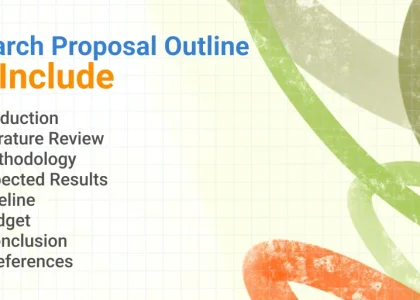Pursuing a PhD is an arduous journey that demands a multitude of resources. Universities offer a wide range of facilities, services, and support systems designed to help PhD students succeed. However, many students are unaware of how to effectively leverage these resources. This article provides an in-depth guide on maximizing university resources to enhance your PhD experience and ensure academic success.
1. Utilize the University Library
The university library is a treasure trove of resources essential for your research and study. Here are some ways to make the most of it:
Access Academic Journals and Databases
University libraries provide access to a vast array of academic journals, databases, and electronic resources that are crucial for conducting literature reviews and staying updated with the latest research in your field. Familiarize yourself with key databases such as JSTOR, PubMed, and IEEE Xplore relevant to your discipline.
Attend Library Workshops
Libraries often offer workshops on research skills, reference management, and using specific databases. Attending these sessions can enhance your research efficiency and improve your ability to locate and utilize scholarly resources effectively.
Seek Help from Librarians
Librarians are invaluable allies in your research journey. They can assist you with advanced search techniques, finding obscure references, and managing citations. Don’t hesitate to ask for their help.
2. Engage with Academic Advisors and Mentors
Your academic advisor and mentors play a critical role in your PhD journey. Here’s how to maximize their support:
Regular Meetings
Schedule regular meetings with your advisor to discuss your progress, challenges, and future plans. These meetings ensure that you stay on track and receive timely feedback on your work.
Seek Diverse Mentorship
In addition to your primary advisor, seek guidance from other faculty members, postdoctoral researchers, and experienced peers. Diverse perspectives can provide a broader understanding of your research field and career options.
Be Proactive
Take the initiative to share your ideas, seek feedback, and discuss any concerns. Being proactive in your communication can lead to more productive and supportive relationships with your mentors.
3. Participate in Research and Academic Events
Engaging in academic events is vital for your professional growth. Here are some opportunities to consider:
Conferences and Seminars
Attend and present at conferences and seminars related to your field. These events provide opportunities to showcase your research, receive feedback, and network with other scholars.
Workshops and Training Sessions
Universities often offer workshops and training sessions on research methods, data analysis, academic writing, and presentation skills. Participate actively to develop these essential skills.
Journal Clubs and Reading Groups
Join journal clubs and reading groups to discuss recent research papers with peers and faculty. These discussions can deepen your understanding of current research trends and methodologies.
4. Leverage Technology and Research Tools
Technology and research tools can significantly enhance your productivity and research quality. Here’s how to leverage them:
Research Software
Familiarize yourself with research software relevant to your field, such as SPSS, R, MATLAB, NVivo, or LaTeX. These tools can streamline data analysis, statistical testing, and document preparation.
Reference Management Tools
Use reference management tools like EndNote, Mendeley, or Zotero to organize your references, automate citations, and create bibliographies. These tools save time and ensure accuracy in your referencing.
Institutional Subscriptions
Take advantage of institutional subscriptions to software and tools. Universities often provide free or discounted access to software packages, online courses, and research tools.
5. Access Funding and Financial Support
Financial stability is crucial for focusing on your research. Maximize available funding and financial support:
Research Grants and Scholarships
Apply for research grants, scholarships, and fellowships offered by your university and external organizations. These funds can support your research expenses, conference travel, and living costs.
Teaching and Research Assistantships
Consider working as a teaching or research assistant. These positions not only provide financial support but also valuable teaching experience and professional development.
Emergency Funds and Loans
Explore options for emergency funds or loans that your university might offer to support students facing unexpected financial difficulties.
6. Seek Academic and Personal Support Services
PhD students often face academic and personal challenges. Utilize the support services available to navigate these challenges effectively:
Writing Centers
Many universities have writing centers that offer individual consultations, workshops, and resources to help improve your academic writing skills.
Counseling Services
Pursuing a PhD can be stressful. Don’t hesitate to seek help from university counseling services to manage stress, anxiety, or other personal issues.
Career Services
University career services can assist with job searches, resume building, interview preparation, and career counseling. Engage with these services early to prepare for your post-PhD career.
7. Engage with Peer Support Networks
Building a strong network of peers can provide emotional support, motivation, and collaborative opportunities. Here’s how to engage with your peers effectively:
Study Groups
Form or join study groups with fellow PhD students to share knowledge, discuss research ideas, and provide mutual support.
Social Events
Participate in social events, workshops, and informal gatherings organized by your department or graduate student associations. Building friendships and connections can make your PhD journey more enjoyable and less isolating.
Online Communities
Join online communities and forums related to your field. Platforms like ResearchGate, Academia.edu, and LinkedIn offer opportunities to connect with researchers worldwide, share your work, and gain insights.
Conclusion
Maximizing university resources is crucial for achieving success in your PhD journey. By leveraging the library, engaging with advisors and mentors, participating in academic events, utilizing technology, accessing funding, seeking support services, and engaging with peer networks, you can enhance your research capabilities and overall experience. Stay proactive, seek help when needed, and make the most of the resources available to you. With these strategies, you can navigate the complexities of your PhD program and achieve your academic and professional goals.
For more tips and insights on managing your PhD journey, check out our related articles:






